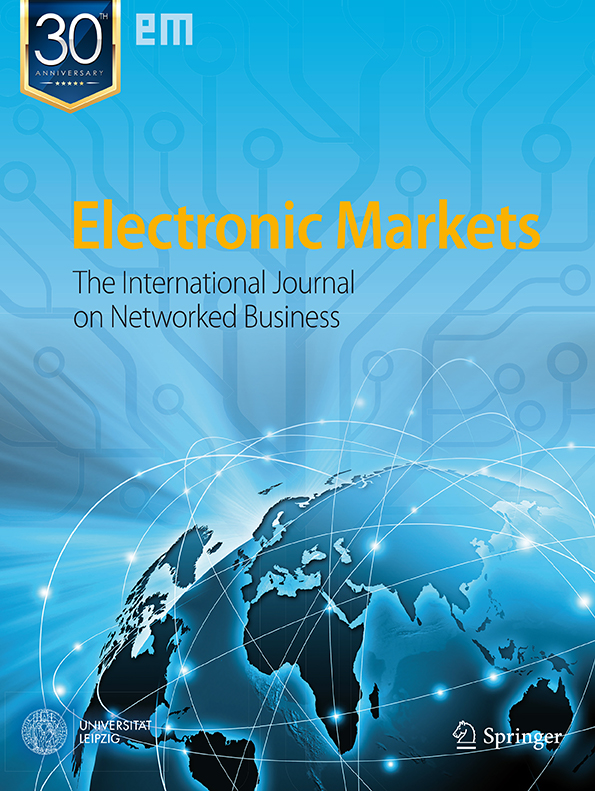Information provision measures for voice agent product recommendations— The effect of process explanations and process visualizations on fairness perceptions
IF 6.8
3区 管理学
Q1 BUSINESS
引用次数: 0
Abstract
Abstract While voice agent product recommendations (VAPR) can be convenient for users, their underlying artificial intelligence (AI) components are subject to recommendation engine opacities and audio-based constraints, which limit users’ information level when conducting purchase decisions. As a result, users might feel as if they are being treated unfairly, which can lead to negative consequences for retailers. Drawing from the information processing and stimulus-organism-response theory, we investigate through two experimental between-subjects studies how process explanations and process visualizations—as additional information provision measures—affect users’ perceived fairness and behavioral responses to VAPRs. We find that process explanations have a positive effect on fairness perceptions, whereas process visualizations do not. Process explanations based on users’ profiles and their purchase behavior show the strongest effects in improving fairness perceptions. We contribute to the literature on fair and explainable AI by extending the rather algorithm-centered perspectives by considering audio-based VAPR constraints and directly linking them to users’ perceptions and responses. We inform practitioners how they can use information provision measures to avoid unjustified perceptions of unfairness and adverse behavioral responses.

语音代理产品推荐的信息提供措施-过程解释和过程可视化对公平性感知的影响
虽然语音代理产品推荐(VAPR)可以方便用户,但其底层人工智能(AI)组件受到推荐引擎的不透明性和基于音频的约束,这限制了用户在进行购买决策时的信息水平。因此,用户可能会觉得自己受到了不公平的对待,这可能会给零售商带来负面影响。根据信息加工和刺激-生物反应理论,我们通过两个实验研究了过程解释和过程可视化作为额外的信息提供措施如何影响用户对vapr的公平感和行为反应。我们发现,过程解释对公平感有积极影响,而过程可视化则没有。基于用户个人资料和购买行为的过程解释在提高公平感知方面效果最强。我们通过考虑基于音频的VAPR约束并将其直接与用户的感知和反应联系起来,扩展了以算法为中心的视角,从而为公平和可解释的人工智能的文献做出了贡献。我们告知从业者如何使用信息提供措施来避免对不公平的不合理感知和不良行为反应。
本文章由计算机程序翻译,如有差异,请以英文原文为准。
求助全文
约1分钟内获得全文
求助全文
来源期刊

Electronic Markets
Multiple-
CiteScore
14.80
自引率
15.30%
发文量
85
期刊介绍:
Electronic Markets (EM) stands as a premier academic journal providing a dynamic platform for research into various forms of networked business. Recognizing the pivotal role of information and communication technology (ICT), EM delves into how ICT transforms the interactions between organizations and customers across diverse domains such as social networks, electronic commerce, supply chain management, and customer relationship management.
Electronic markets, in essence, encompass the realms of networked business where multiple suppliers and customers engage in economic transactions within single or multiple tiers of economic value chains. This broad concept encompasses various forms, including allocation platforms with dynamic price discovery mechanisms, fostering atomistic relationships. Notable examples originate from financial markets (e.g., CBOT, XETRA) and energy markets (e.g., EEX, ICE). Join us in exploring the multifaceted landscape of electronic markets and their transformative impact on business interactions and dynamics.
 求助内容:
求助内容: 应助结果提醒方式:
应助结果提醒方式:


